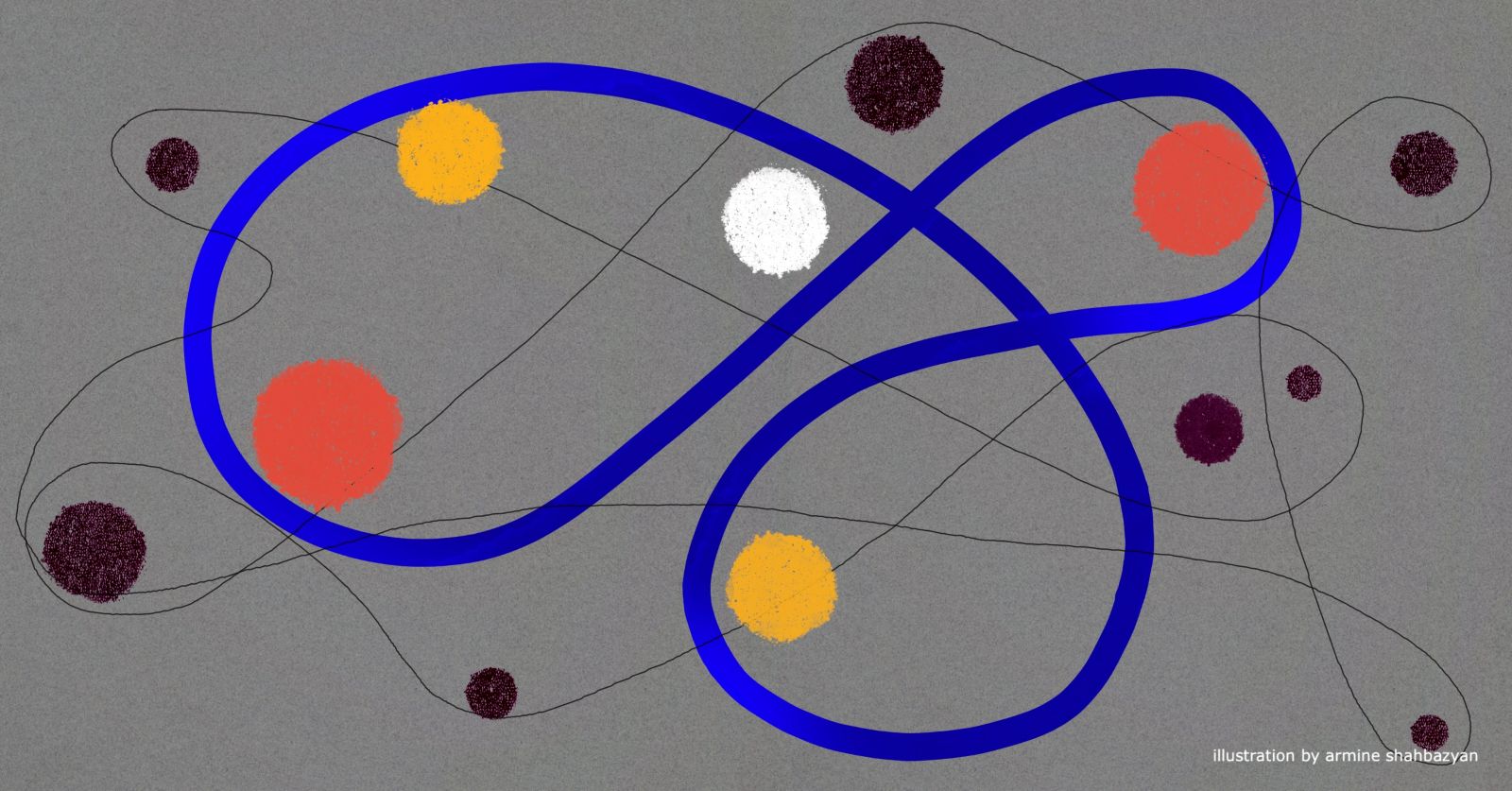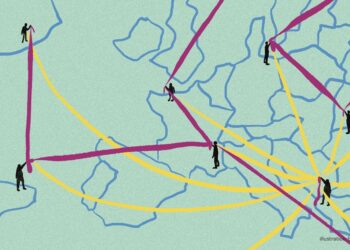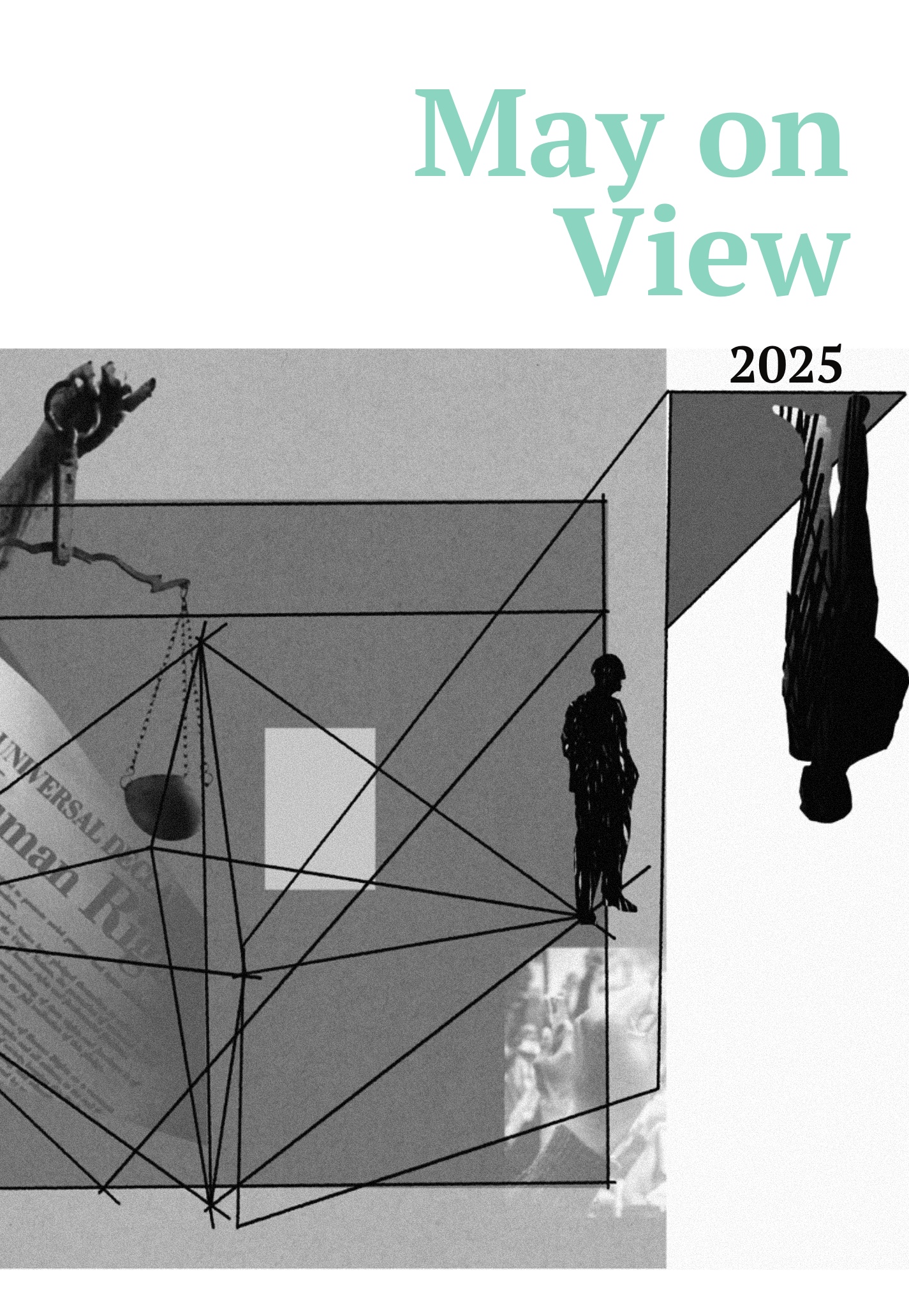
Listen to the article.
As Armenia recalibrates its foreign policy and distances itself from its traditional reliance on Russia in recent years, it has sought to broaden its strategic horizons. While deepening ties with the West, especially France and the United States, Yerevan is also engaging with non-Western actors, especially India and Iran to diversify its diplomatic and security relationships. Ongoing efforts include intensifying ties with the Arab world and Central Asia, among other neighboring regions. Yerevan’s ties with these countries vary from increasingly warm (Kazakhstan) to nearly non-existent (Uzbekistan).
Overview
For 70 years, Armenia and the five states that comprise Central Asia were part of the Soviet Union. Armenia shares membership in the same military and economic alliances—the Russian-led Collective Security Treaty Organization (CSTO) and Eurasian Economic Union (EAEU)—with three of these states: Kazakhstan, Kyrgyzstan, and Tajikistan. Although Armenia has effectively frozen its membership in the CSTO for more than two years, it remains hesitant to formally withdraw. In addition to these three, Armenia and Uzbekistan are both members of the Commonwealth of Independent States (CIS). Turkmenistan has an observer status within the CIS and maintains a largely isolationist foreign policy.
Armenia’s trade with the five Central Asian countries collectively stood at $161 million, making up just 0.5% of Armenia’s total foreign trade. But it has tripled since 2021, before the Russian invasion of Ukraine, when it was just $53.7 million. Kazakhstan accounts for a little over half of the total, followed by Uzbekistan (22%) and Turkmenistan (14%).
Central Asia is home to a large community of ethnic Armenians. By the time of the last Soviet census of 1989, more than 110,000 Armenians lived in the five republics: over 50,000 in Uzbekistan, nearly 32,000 in Turkmenistan, almost 20,000 in Kazakhstan, and smaller numbers in Tajikistan and Kyrgyzstan. According to most recent national censuses, more than 65,000 Armenians still reside in the five countries, including 34,000 in Uzbekistan, 15,000 in Kazakhstan and Turkmenistan each.
Kazakhstan
Kazakhstan is the most important of the five Central Asian states in terms of geopolitical influence and strategic significance. Within Russian-led organizations like the CIS, CSTO, and the EAEU, Kazakhstan forms part of a trio with Russia and Belarus, but pursues a multi-vector foreign policy. Yerevan’s relations with Astana, quite tense a decade ago, have improved greatly in recent years. While ties with Moscow, especially with Minsk, have increasingly soured, Yerevan reached out to Astana in late 2023, setting the stage for rapprochement.
Ties have fluctuated greatly in the post-Soviet period. In September 1991, as the USSR was disintegrating, Nursultan Nazarbayev, president of then-Soviet Kazakhstan and his Russian counterpart Boris Yeltsin tried to mediate— unsuccessfully—in the Karabakh conflict.[1]
Armenia and Kazakhstan signed a treaty on friendship and cooperation in September 1999, during President Robert Kocharyan’s visit to Astana. It entered into force after ratification two years later, when Nazarbayev reciprocated a visit to Yerevan in May 2001. At the time, he stressed that Astana had opposed any mention of a “military aggression” by Armenia in the summit of Turkic-speaking states as such statements “do not resolve anything.”
In the 2010s, however, Nazarbayev explicitly took sides on Nagorno-Karabakh leading to unprecedented tensions with Armenia within Russian-led organizations. In 2013 and 2014, Armenia’s President Serzh Sargsyan tacitly criticized Kazakhstan (and other CSTO allies) for taking Baku’s side on Nagorno-Karabakh.
In 2013, when Armenia decided to join the Customs Union—the predecessor of the Eurasian Economic Union—Nazarbayev raised the issue of Nagorno-Karabakh. “The question of the Customs Union border, where it will run in Armenia in connection with the Nagorno-Karabakh conflict, remains open,” he stated in December 2013. He essentially threatened to block Yerevan’s accession if no customs were established between Armenia and Nagorno-Karabakh (Artsakh). Armenian officials ruled out such a scenario.
In late May 2014, at the ceremony of establishing the Eurasian Economic Union in Astana, Nazarbayev publicly conveyed Azerbaijani President Ilham Aliyev’s message that Armenia joined the World Trade Organization (WTO) with the condition that the provisions should apply to the territory of Armenia within its international borders recognized by the UN. It was opposed by Sargsyan and created uncertainty over Armenia’s membership. The condition was eventually dropped by Kazakhstan after an apparent intervention by Putin, leading to Armenia’s eventual accession in October 2014.
Tensions between Yerevan and Astana did not recede. In April 2016, following the Four Day War in Nagorno-Karabakh, Nazarbayev refused to attend the Yerevan summit of the Eurasian Economic Union in a show of support for Baku—leading to its cancellation.
Just months after the Azerbaijani takeover of Nagorno-Karabakh, in a December 2023 call, Pashinyan and Kazakh President Kassym-Jomart Tokayev expressed their mutual interest in developing relations and stressed the need “to realize the potential of cooperation in economic and other fields.” The Kazakh readout said they discussed “promising areas” such as transport, logistics, and trade. This was followed by Kazakh Foreign Minister Murat Nurtleu’s visit to Yerevan in March 2024, when his Armenian counterpart Ararat Mirzoyan said Kazakhstan “plays a very important role” in Yerevan’s efforts to build partnerships from the Americas to East Asia. Nurtleu called Armenia “a time-tested partner” of Kazakhstan.
Tokayev himself visited Yerevan the next month, becoming the first Kazakh leader to do so in 23 years. Pashinyan called it “very important”, while Tokayev said Astana and Yerevan have “similar views on many international issues.” He stressed Astana’s interest in “developing a comprehensive partnership” with Yerevan and welcomed Pashinyan’s Crossroads of Peace initiative to unblock regional communications. The two leaders signed nearly a dozen agreements and memorandums.
Pashinyan and Tokayev spoke on the phone in October 2024, stressing “the new dynamics” that have emerged in the relations since Tokayev’s visit. Yerevan’s interest to advance ties further were clear when Foreign Minister Mirzoyan visited Astana in late March 2025 and twice used the phrase “strategically oriented” to describe bilateral ties and told Tokayev that Yerevan shares his vision of the “strategic partnership” between the countries. Mirzoyan stressed that both countries are striving to strengthen their “sovereignty and independence, as well as to increase transit potential and modernize economies.”
Among Armenia’s nominal allies within the CSTO and the Eurasian Economic Union, Kazakhstan maintains the most balanced relations with Russia, the West, and China. This lets Yerevan look at ties with Astana much differently from Belarus, which has become highly aligned with Moscow. As Armenia looks to decrease its reliance on Russia, Kazakhstan may also be—in theory—a source of uranium for Armenia’s sole nuclear power plant, which is now entirely reliant on Russia.
Turkmenistan
Turkmenistan is the smallest of the five in terms of population, but holds nearly 4% of the world’s natural gas reserves. Yerevan’s ties with Ashgabat have been pragmatic and centered around gas supplies. Armenia opened an embassy there in 1994, which Ashgabat reciprocated in 2000 and there have been several mutual visits on the presidential level.
Between 1993 and 1997, Turkmenistan was Armenia’s sole natural gas supplier, with Russia supplying mazut (low-quality heavy fuel oil) for power plants. The Turkmen gas supplies helped alleviate Armenia’s severe energy crisis caused by Soviet collapse and the war in Nagorno-Karabakh. At the time, Armenia suffered from the chronic deficit of hard currency and paid mostly in barter and behind schedule. Armenia often paid in cognac, cigarettes, and cables. Turkmen leader Saparmurat Niyazov visited Yerevan in March 1996 to discuss gas supplies after Armenia had accumulated a $50 million debt. Turkmen gas reached Armenia via Russia and Georgia and was eventually replaced with Russian gas by 1997.
Since then Armenia has imported natural gas from Russia and Iran, but the possibility of Turkmen gas imports have often been discussed. The idea was revived recently. In late March, Pashinyan advisor Artashes Tumanyan stated that Yerevan and Ashgabat have been in talks for the supply of Turkmen natural gas for several years. The expected 600 million to 1 billion cubic meters of gas would be supplied via Iran under a swap deal. He said Iran (and Georgia) have agreed, but negotiations were underway around the price. No preliminary agreements have been reported, but negotiations continue.
Export of Turkmen gas would help Armenia reduce its heavy reliance on Russian gas and diversify its suppliers. Last year Armenia imported nearly 2.3 billion cubic meters (bcm) from Russia and 0.450 bcm from Iran. (Imported Iranian gas has been swapped for electricity since 2009.) If Turkmenistan does end up supplying 600 million to 1 billion cubic meters to Armenia, it would constitute a significant new source.
Uzbekistan
Armenia’s relations with Uzbekistan, the most populous country in Central Asia, have been cool since the collapse of the Soviet Union. Diplomatic relations were only established in 1995, making Uzbekistan the last of the five Central Asian states to formalize ties with Armenia. Neither country hosts a resident embassy, however, Armenia has appointed a non-resident ambassador to Uzbekistan, based in Yerevan. Although the two were nominally aligned during Uzbekistan’s brief membership in the CSTO from 2006 to 2012, practical engagement has been minimal.
In 30 years of ties, visits between the two countries have been rare. Armenian Foreign Minister Vartan Oskanian visited Tashkent in 2002, while no senior Uzbek official is recorded on the Armenian Foreign Ministry’s website as having made an official visit to Armenia. The few visits that have occurred have taken place on the sidelines of multilateral forums. Notably, Uzbek Prime Minister Abdulla Aripov visited Yerevan in October 2024 to participate in the Eurasian Economic Union summit, where Uzbekistan holds observer status.
Uzbekistan is also the only Central Asian state to have consistently and openly sided with Azerbaijan on Nagorno-Karabakh. In March 2008, it was the only one to vote for the Azerbaijani resolution at the UN General Assembly that “reaffirmed Azerbaijan’s territorial integrity” and demanded “the immediate withdrawal of all Armenian forces from all occupied territories there.” After the 2020 war, Uzbekistan’s President Shavkat Mirziyoyev congratulated Aliyev “on the return of the territories of Nagorno-Karabakh and the restoration of historical justice,” while Uzbekistan’s Deputy Parliament Speaker Sodiq Safoyev welcomed the Azerbaijani takeover of Artsakh in September 2023.
There has been some positive—albeit limited—movement in ties in recent years. Pashinyan and Mirziyoyev met in October 2019 in Turkmenistan, which Pashinyan described as “historic” for being the first ever official meeting between the two countries’ leaders. Both extended invitations for reciprocal visits, though neither has materialized to date. Discussions included proposals to deepen ties, with Mirziyoyev suggesting the establishment of an intergovernmental commission. After a four-year pause, the two leaders spoke by phone in July 2023. The following month, Tashkent hosted the inaugural session of the Armenia-Uzbek Intergovernmental Commission on Trade and Economic Cooperation, making a concrete step toward institutionalizing bilateral relations.
Kyrgyzstan and Tajikistan
Armenia’s bilateral relations with Kyrgyzstan and Tajikistan have not been particularly cordial or significant. Yerevan does not maintain embassies in either country; diplomatic affairs are managed through its embassy in Astana, Kazakhstan. All three are members of the Russian-led Eurasian Economic Union, the CSTO, and the CIS. Trade remains very modest, and diplomatic engagements have not been very frequent and usually in multilateral platforms. One historical exception was Kyrgyzstan’s role in mediating the ceasefire that ended active hostilities in the first Nagorno-Karabakh war. The agreement, signed in the Kyrgyz capital Bishkek on May 5, 1994, took effect a week later and held, albeit tenuously, until the outbreak of the 2020 war.
Footnotes
[1] They visited the region, resulting in a joint declaration. Mediation efforts however effectively ended on November 20, 1991, when a helicopter carrying a number of senior Azerbaijani officials, but also Kazakhstan’s Deputy Interior Minister Saylau Serikov was accidentally shot down over Nagorno-Karabakh.
By the same author
Politics
Fairy Tales, Textbooks and Territorial Claims: Weaving the Myth of “Western Azerbaijan”
Azerbaijan has institutionalized the notion that Armenia is “Western Azerbaijan” through state-sanctioned textbooks, children’s literature, and academic curricula. Intensified since the 2020 war, this narrative reflects expansionist ambitions that extend beyond Nagorno-Karabakh—even as peace talks continue.
Read moreCourting Influence: Azerbaijan’s Lobbying Network in Italy
Azerbaijan’s lobbying efforts in Italy reveal a coordinated network of academics and media figures promoting pro-Baku narratives. Jelena Melikyan explores the ethical concerns, historical distortions, and impact on Italian public discourse, particularly regarding Armenia and Nagorno-Karabakh.
Read moreEU-Armenia Relations at a Crossroads: Between Normative Values and Pragmatism
Armenia's deepening relationship with the European Union faces complex challenges amid regional pressures and security concerns. As Yerevan strategically diversifies from Russian influence, EU engagement has grown, however, its impact remains limited without a credible membership path, a strategy tailored to Armenia’s vulnerabilities and balancing its normative commitments with its geopolitical and energy interests.
Read moreHijacking History: Baku’s “Western Azerbaijan” Campaign
Baku’s “Western Azerbaijan” campaign uses fabricated historical claims and cultural appropriation to assert territorial ambitions over Armenia. Armine Tigranyan traces the roots, tactics and international reach of this systematic campaign of historical revisionism and cultural erasure.
Read more









